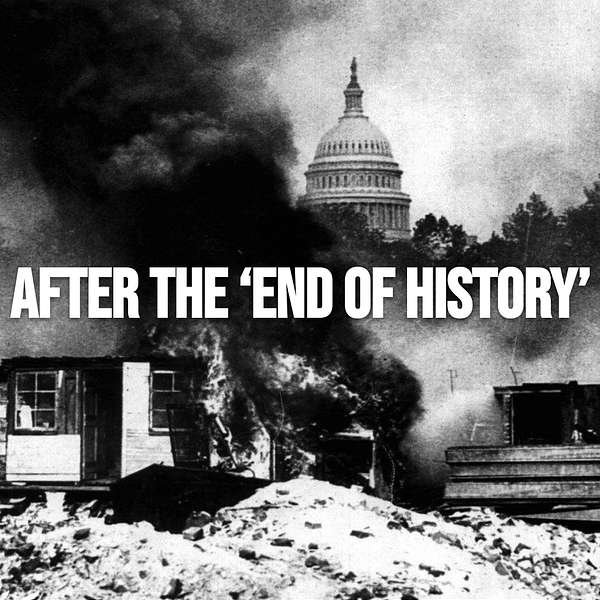
After the ‘End of History’
After the ‘End of History’ is a podcast about International Relations Theory and History.
After the ‘End of History’
American Foreign Policy and Its Thinkers: Part VIII - Concluding Thoughts
After the ‘End of History’ is a podcast about International Relations and History. It is part of the Hawks & Sparrows project.
Want more? Please consider supporting the podcast on Patreon to receive bonus episodes, as well as early releases of the monthly Hawks & Sparrows newsletter.
You can also follow us on Twitter @after_history.
Thanks for listening,
Mario and Tom
*
At last we wrap our discussion on Perry Anderson's excellent American Foreign Policy and Its Thinkers with a summary conversation. For those that may be joining the podcast for the first time, this would be a great entry point for understanding Anderson's recent Marxist scholarship, where he has focused on the social, economic and political development of the great and emerging powers of the world. His other books include The New Old World, Brazil Apart and recent studies on Britain (see NLR 125) and the EU (see LRB 17 December 2020 and 7 January 2021).
Breaking into a more informal discussion of what we think this work offers activists and writers opposed to US imperialism, we drill into some theoretical issues around the state and society, the role of intellectuals and strategy (uniquely?) in American foreign policy, while also projecting out beyond the book's scope, which was published midway through Obama's second term, into the Trump administration and after.
As a segue into the next book under discussion -- Kishore Mahbubani's Has China Won? -- we also tackle some issues around the rise of China as a geopolitical rival to America's global hegemony and what that might mean for the direction of American foreign policy in the near to mid-term. Join us for a more in depth discussion on this topic in Episode 16.
Jason King continues to kindly provide the music that you hear in After the 'End of History.' Thanks for listening.